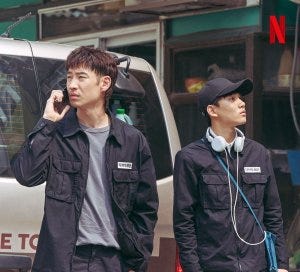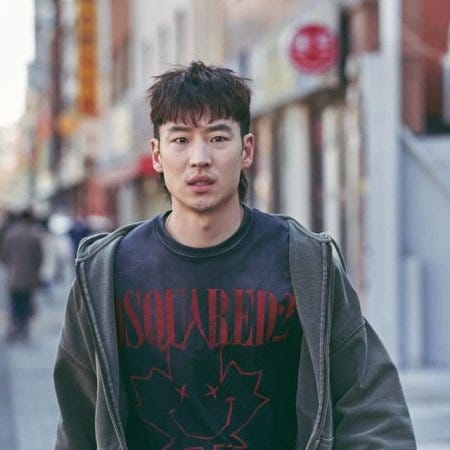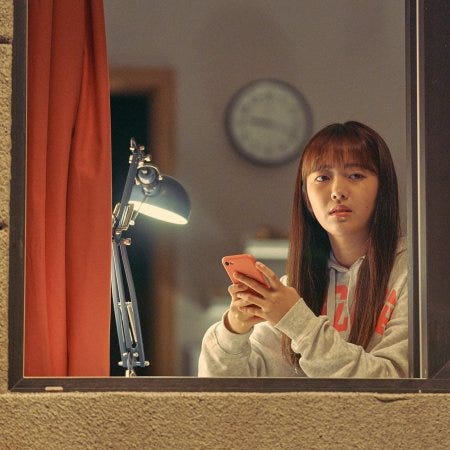Move to Heaven (2021) A Review
Finally finished the series a few nights ago now. (Getting three people from the same household to watch tv together is much more tricky than one might think.) My verdict: It’s a good bit of telly and hardly surprising that this has been greeted by near universal praise. Every scene and every shot clearly points to this being a labour of love. As someone who has been watching K dramas now for over a decade, it seems to be the kind of drama that Koreans are really good at when they make the effort: A whimsical, slice-of-life, semi-melodrama with plenty of heart. It is calculated to turn on the waterworks at the opportune moment. In its essence the drama does nothing new although the notion of a trauma cleaning company functioning as a de facto private detective agency is unique to me. The notion of giving the dead a good send-off and acting posthumously on their behalf to achieve what they couldn’t in life, has been done by many dramas at various times in different ways. Sell Your Haunted House, as a more recent example, attempts the same sort of thing via contact with the restless dead. Chocolate, a melodrama starring Ha Ji-won featured a gifted chef who finds her way to a hospice kitchen uses food as the means of celebrating the dying as well as to commemorate the departed. These morality tales are timeless and in such uncertain times especially timeless. Life is too short… far too short to live a life of regrets. Live in such a way that when it is time to go, one can let go of everything.
For a seasoned K drama watcher like myself there’s a certain predictability in where the various storylines are headed. The mysteries are rarely mysterious. The twists are seldom unexpected. It’s not hard to see what’s coming and so the emotional impact varies. The pacing sometimes verges on self-indulgence but fortunately the storytelling seldom falters. Rather than the individual cases, the major attraction of the show (for me at least) is the volatile relationship between uncle Cho Sang-gu and nephew Han Geu-ru, played by Lee Je-hoon and Tang Sang-jun respectively. Lee Je-hoon is reliably fantastic as the reluctant uncle-guardian who has been thrust with the responsibility of caring for his brother’s only son after being released from prison. He’s hardly an ideal candidate. The result of this unlikely bromance is a more profound and perhaps more poignant retelling of the Rain Man story that starred Tom Cruise and Dustin Hoffman all those years ago. The two men don’t get on at first. They are polar opposites who are destined to clash mightily on first sight.
Clash they do because Sang-gu has got a large chip on his shoulders about his older departed brother due to a long-standing misunderstanding. Cynical, world-weary Sang-gu who bears the wounds of an abusive childhood defaults to his prickly facade and pretends he doesn’t give a damn about anything but it’s soon obvious that he’s a kinder, gentler soul than he lets on. Without a doubt Lee Je-hoon is superb in the role as the ex-con cage fighter who is dragged along (kicking and screaming) for the Move to Heaven rollercoaster ride. He doesn’t seem to be a good fit for anything related to his newfound nephew’s well-ordered life. Except as a chaotic unwanted whirlwind that turns his life upside down. However, as it begins to dawn on the perceptive nephew, this uncle, despite all his obnoxious ways, is not without his redeeming qualities. The bad boy exterior seems to be largely for public consumption.
Tang Sang-ju is a rising star at just 17. He certainly holds his own as the autistic savant, Geu-ru whose iron sharpens iron relationship with uncle Sang-gu eventually sees the two of them finding consolation and a salve while learning to move on from grief and loss, as they help those whose lives intersect with the Move to Heaven crew. Na-mu who is not-so-secretly infatuated with Geu-ru, is constantly on Sang-gu’s case, not for no good reason. But while being mature in some ways, she’s young and silly on other occasions. After all people are far more complex than meets the eye. Still it makes for some much needed humour in the middle of the melodrama.
Like many shows in this current climate this show affirms the importance of non-biological family units formed at times out of kindness, genuine affection and even of necessity. Of all the stories featured, Matthew Green’s story was especially heartbreaking. Fostered out at birth, he was adopted overseas but was never given permanent residency in the US due to medical issues so he was deported back to South Korea. Tragedy followed him as he wasn’t accepted by the country of his birth either because he was not conversant in the local language. He died alone in a third-rate hotel room while pining for his birth mother. The drama used this story to highlight the plight of many South Korean babies who share Matthew’s fate. Due to tireless efforts of the Move to Heaven gang, Matthew’s fate would reverberate around the country.
Move to Heaven is unabashedly a morality tale wrapped within a diatribe wrapped within a feel-good, life affirming tale. It is written to have broad appeal and to be politically (buzzword alert) inclusive assuming that its audience would be onboard with the show’s underlying assumptions and contested conventional wisdom. It’s a sermon preached loud with a megaphone from the rooftops but judging from the reception around the web, the congregation seems to be gobbling up every morsel.






